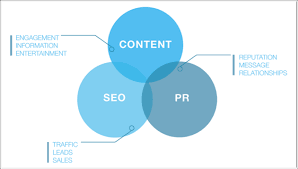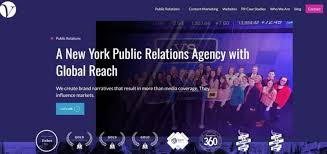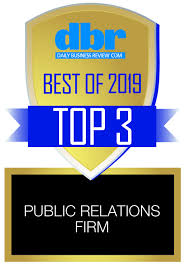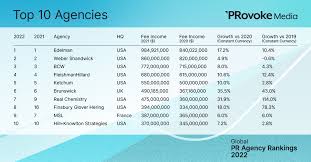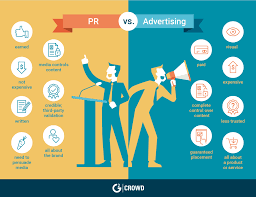Unlocking the Power of PR in SEO: Strategies for Digital Success
The Impact of Public Relations in SEO
Public Relations (PR) and Search Engine Optimization (SEO) are two vital components of a successful digital marketing strategy. While PR focuses on managing the reputation and communication of a brand, SEO aims to improve a website’s visibility in search engine results.
When PR and SEO work together effectively, they can amplify the overall impact on a brand’s online presence. Here are some key ways in which PR can benefit SEO:
Quality Backlinks
PR efforts such as press releases, guest blogging, and media coverage can help generate high-quality backlinks to a website. Backlinks from reputable sources are crucial for improving search engine rankings and driving organic traffic.
Brand Authority
Establishing a strong brand authority through PR activities can enhance the credibility of a website in the eyes of search engines. Websites with high authority are more likely to rank higher in search results.
Content Promotion
PR professionals excel at creating compelling stories and content that resonate with audiences. By promoting this content through various channels, including social media and press releases, PR can increase visibility and drive traffic to the website.
Reputation Management
A positive online reputation is essential for SEO success. PR plays a crucial role in managing and enhancing a brand’s reputation, which can indirectly influence search engine rankings.
Social Signals
Social media is an integral part of PR strategies today. Engaging with audiences on social platforms not only boosts brand awareness but also generates social signals that can impact SEO performance.
In conclusion, integrating PR into your SEO strategy can have significant benefits for your online visibility and brand reputation. By leveraging the strengths of both disciplines, businesses can create a powerful digital marketing strategy that drives results.
Seven Key Benefits of Integrating Public Relations in SEO Strategies
- 1. Enhances website credibility through quality backlinks.
- 2. Improves search engine rankings with high-authority brand mentions.
- 3. Drives organic traffic by promoting engaging content.
- 4. Manages and enhances online reputation for better SEO performance.
- 5. Boosts social signals through active social media engagement.
- 6. Increases brand visibility and awareness across various channels.
- 7. Creates a powerful digital marketing strategy that delivers results.
The Downsides of Integrating PR in SEO Strategies
- 1. Overemphasis on link-building through PR may lead to low-quality backlinks that could harm SEO performance.
- 2. PR campaigns may not always align with the specific keywords or content strategy required for effective SEO.
- 3. The impact of PR efforts on SEO rankings can be difficult to measure accurately, leading to challenges in assessing ROI.
- 4. PR activities focused solely on brand awareness may not directly translate into improved search engine visibility.
- 5. Changes in search engine algorithms can affect the effectiveness of PR strategies in boosting SEO performance.
- 6. Limited control over external factors, such as media coverage and social media interactions, can impact the outcomes of PR efforts on SEO.
1. Enhances website credibility through quality backlinks.
Public Relations (PR) plays a crucial role in enhancing website credibility through the generation of quality backlinks. By securing backlinks from reputable sources through PR efforts such as press releases, guest blogging, and media coverage, a website can establish authority and trustworthiness in the eyes of search engines. These high-quality backlinks not only improve search engine rankings but also signal to users that the website is a reliable source of information, ultimately enhancing its overall credibility and online reputation.
2. Improves search engine rankings with high-authority brand mentions.
One significant advantage of integrating Public Relations (PR) into Search Engine Optimization (SEO) is its ability to enhance search engine rankings through high-authority brand mentions. When PR efforts secure brand mentions from reputable sources, it signals to search engines that the brand is trustworthy and credible. These high-authority mentions contribute to building the brand’s online reputation and authority, ultimately boosting its visibility in search engine results pages. By leveraging PR strategies to cultivate a strong brand presence across various platforms, businesses can improve their SEO performance and attract more organic traffic to their website.
3. Drives organic traffic by promoting engaging content.
One key benefit of integrating Public Relations (PR) into Search Engine Optimization (SEO) is its ability to drive organic traffic by promoting engaging content. PR professionals excel at creating compelling stories and content that resonate with audiences. By leveraging PR strategies to promote this engaging content through various channels, such as social media, press releases, and media coverage, businesses can attract more visitors to their website organically. This not only increases website traffic but also enhances user engagement and boosts search engine rankings, ultimately contributing to a more robust online presence and brand visibility.
4. Manages and enhances online reputation for better SEO performance.
Managing and enhancing online reputation is a crucial pro of integrating Public Relations (PR) into Search Engine Optimization (SEO) strategies. A positive online reputation not only fosters trust among users but also signals credibility to search engines, ultimately leading to better SEO performance. PR professionals excel at shaping brand perception through strategic communication efforts, which in turn can help businesses maintain a strong online presence and improve their search engine rankings. By effectively managing reputation through PR activities, businesses can enhance their overall SEO strategy and establish a solid foundation for long-term success in the digital landscape.
5. Boosts social signals through active social media engagement.
One significant benefit of integrating Public Relations (PR) into Search Engine Optimization (SEO) is its ability to boost social signals through active social media engagement. By utilising PR strategies to engage with audiences on various social media platforms, businesses can increase brand visibility, drive website traffic, and enhance online reputation. Building a strong presence on social media not only fosters direct interactions with customers but also generates valuable social signals that search engines consider when ranking websites. This proactive approach to social media engagement through PR efforts can contribute to improved SEO performance and overall digital marketing success.
6. Increases brand visibility and awareness across various channels.
One significant advantage of incorporating Public Relations (PR) into Search Engine Optimization (SEO) is the ability to increase brand visibility and awareness across multiple channels. By leveraging PR strategies such as media coverage, influencer partnerships, and content promotion, businesses can enhance their presence on various platforms, reaching a wider audience and driving more traffic to their website. This increased visibility not only boosts brand recognition but also contributes to improved search engine rankings, ultimately leading to greater online visibility and brand awareness.
7. Creates a powerful digital marketing strategy that delivers results.
By integrating Public Relations (PR) into Search Engine Optimization (SEO), businesses can create a powerful digital marketing strategy that delivers tangible results. PR activities such as generating quality backlinks, enhancing brand authority, promoting engaging content, managing reputation effectively, and leveraging social signals all contribute to a comprehensive approach that boosts online visibility and drives organic traffic. When PR and SEO work hand in hand, businesses can establish a strong online presence, improve search engine rankings, and ultimately achieve their marketing objectives with measurable success.
1. Overemphasis on link-building through PR may lead to low-quality backlinks that could harm SEO performance.
An important con of integrating Public Relations (PR) into Search Engine Optimization (SEO) is the risk of overemphasizing link-building efforts through PR, which may result in acquiring low-quality backlinks. These low-quality backlinks can potentially harm SEO performance by diminishing the credibility and authority of a website in the eyes of search engines. It is crucial to strike a balance between quantity and quality when obtaining backlinks through PR activities to ensure that the links contribute positively to SEO efforts without compromising the website’s ranking and reputation.
2. PR campaigns may not always align with the specific keywords or content strategy required for effective SEO.
One notable drawback of integrating PR into SEO strategies is that PR campaigns may not always align perfectly with the specific keywords or content strategy necessary for effective search engine optimization. While PR efforts are typically focused on building brand awareness and reputation through storytelling and media coverage, they may not always incorporate the targeted keywords or structured content needed to improve search engine rankings. This mismatch can result in a disconnect between the PR messaging and SEO objectives, potentially diluting the overall impact on organic search visibility and keyword performance. Achieving synergy between PR campaigns and SEO tactics requires careful coordination and alignment to ensure that both aspects work harmoniously towards achieving the desired marketing goals.
3. The impact of PR efforts on SEO rankings can be difficult to measure accurately, leading to challenges in assessing ROI.
One significant drawback of incorporating Public Relations (PR) efforts into Search Engine Optimization (SEO) strategies is the challenge of accurately measuring the impact on SEO rankings. Due to the complex nature of SEO algorithms and the indirect influence of PR activities on search engine performance, determining the exact correlation between PR efforts and SEO outcomes can be difficult. This lack of precise measurement can pose challenges for businesses in evaluating the Return on Investment (ROI) of their PR initiatives within the context of SEO strategies, making it challenging to assess the effectiveness and justify resource allocation.
4. PR activities focused solely on brand awareness may not directly translate into improved search engine visibility.
One notable drawback of incorporating Public Relations (PR) activities into Search Engine Optimization (SEO) strategies is that PR efforts solely aimed at enhancing brand awareness may not directly result in improved search engine visibility. While PR plays a crucial role in building brand reputation and engaging with audiences, it does not always directly impact search engine rankings. Without a strategic alignment between PR activities and SEO objectives, the benefits of brand awareness may not translate into tangible improvements in search engine visibility. It is essential for businesses to ensure that their PR initiatives are integrated with SEO tactics to maximise the overall impact on their online presence and organic search performance.
5. Changes in search engine algorithms can affect the effectiveness of PR strategies in boosting SEO performance.
One significant drawback of incorporating Public Relations (PR) strategies into Search Engine Optimization (SEO) efforts is the susceptibility to changes in search engine algorithms. The effectiveness of PR tactics in enhancing SEO performance can be impacted when search engines update their algorithms. What once may have been a successful PR approach to improve search rankings could become less effective or even counterproductive following algorithm changes. This dynamic nature of search engine algorithms underscores the importance of staying informed and adapting PR strategies to align with the evolving SEO landscape for sustained success.
6. Limited control over external factors, such as media coverage and social media interactions, can impact the outcomes of PR efforts on SEO.
One significant disadvantage of integrating PR into SEO strategies is the limited control over external factors that can influence the outcomes. Factors like media coverage and social media interactions are often beyond the direct control of businesses, making it challenging to predict or manage their impact on SEO results. Negative publicity or unfavourable social media interactions can potentially overshadow positive PR efforts, affecting a brand’s online visibility and reputation in search engine results. This lack of control over external variables highlights the need for businesses to continuously monitor and adapt their PR and SEO strategies to mitigate any adverse effects on their digital presence.



